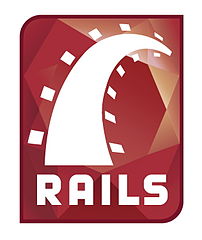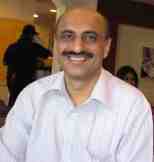In 1992, Butler Lampson received the Turing award in for his contributions to the development of distributed, personal computing environments and the technology for their implementation: workstations, networks, operating systems, programming systems, displays, security and document publishing.
On Saturday, 24th November, Neeran Karnik, Senior Architect at BMC Software, will give a talk about Butler Lampson’s work. This talk is a part of the Turing Awards monthly lecture series that happens at Persistent’s Dewang Mehta Auditorium.
This will be followed by a session on [“Experience Sharing – Systems design and development Projects in India”]. The speakers include Dr. Basant Rajan, CEO of Coriolis Software (previously CTO of Symantec India), and Abhay Ghaisas, Product Development Architect BMC Software.
The event is free for everyone to attend. Register here
About the Turing Awards
The Turing awards, named after Alan Turing, given every year, are the highest achievement that a computer scientist can earn. And the contributions of each Turing award winner are then, arguably, the most important topics in computer science.
About Turing 100 @ Persistent Lecture Series
This year, the Turing 100 @ Persistent lecture series will celebrate the 100th anniversary of Alan Turing’s birth by having a monthly lecture series. Each lecture will be presented by an eminent personality from the computer science / technology community in India, and will cover the work done by one Turing award winner.
The lecture series will feature talks on Ted Codd (Relational Databases), Vint Cerf and Robert Kahn (Internet), Ken Thompson and Dennis Ritchie (Unix), Jim Gray, Barbara Liskov, and others. Full schedule is here
This is a lecture series that any one in the field of computer science must attend. These lectures will cover the fundamentals of computer science, and all of them are very relevant today.
Fees and Registration
This is a free event. Anyone can attend.
The event will be at Dewang Mehta Auditorium, Persistent Systems, SB Road, from 2pm to 5pm on Saturday 24th November. This event is free and open for anybody to attend. Register here

![Reblog this post [with Zemanta]](http://img.zemanta.com/reblog_b.png?x-id=0ed3228e-aa1b-4e8d-b70d-8bcdaf07f6be)

![Reblog this post [with Zemanta]](http://img.zemanta.com/reblog_b.png?x-id=5c6a76e0-7a16-4ab4-9d5f-4dda326bfa6e)

![Reblog this post [with Zemanta]](http://img.zemanta.com/reblog_b.png?x-id=45d6e635-e6a7-436f-b1e5-bc624d74df4b)